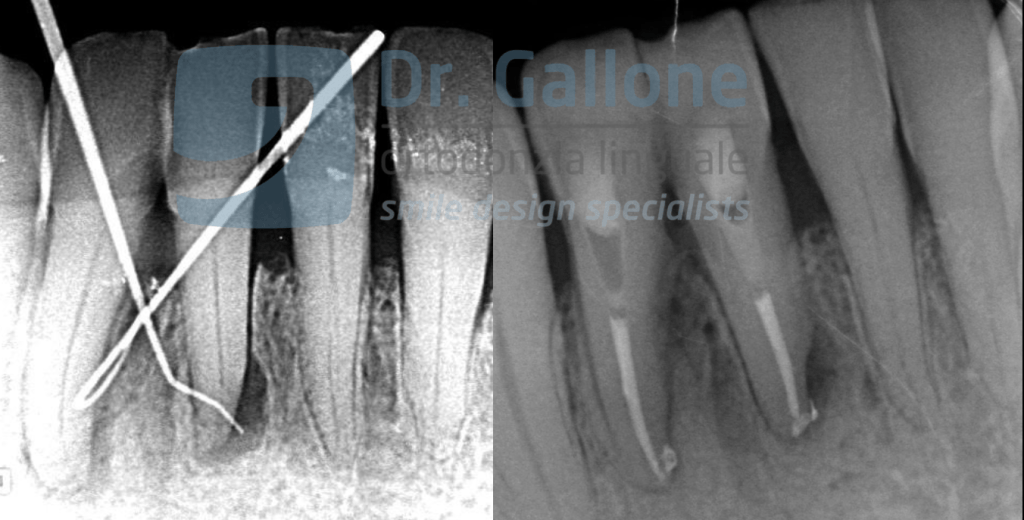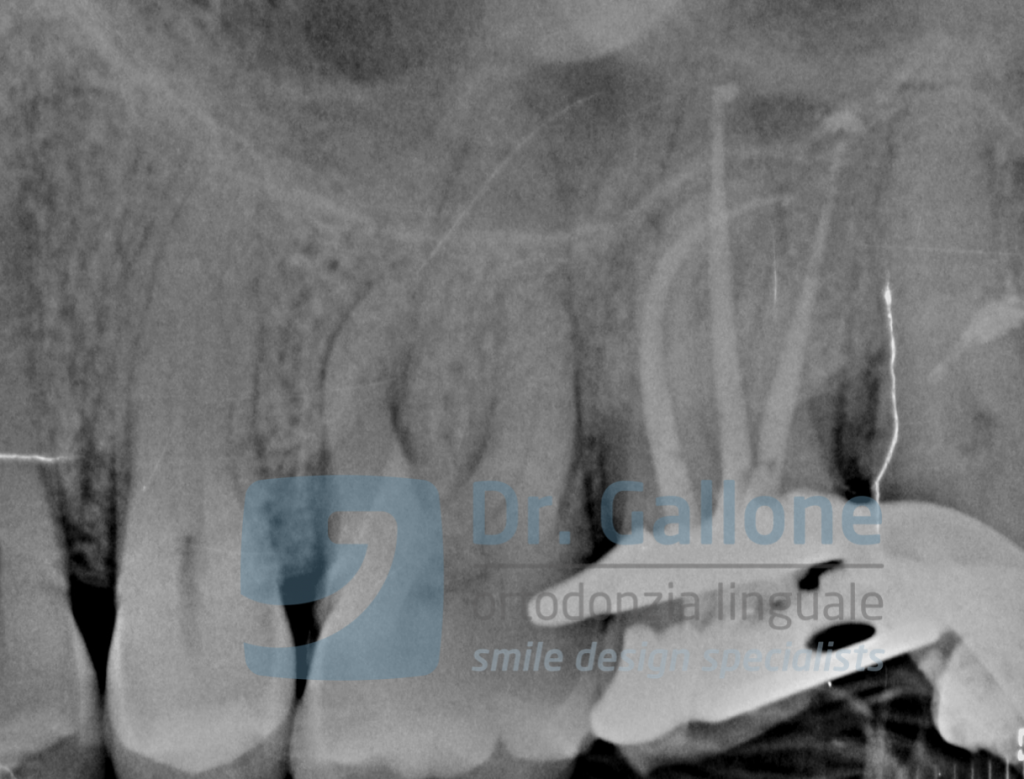Endodontics

Devitalization of a tooth? How
the dentist saves your tooth
What is the devitalization of a tooth? Does it hurt? Is it really necessary?
The massive amount of information present on the internet is often a source of doubt and perplexity for the curious patient, who goes to get information before starting a therapy, but bad interpretation and unreliable, scientifically unaccredited sources can mislead the patient into making the riskiest choice- the lack of treatment.
What happens to the tooth nerve?
The tooth is a complex organ that nature has equipped with receptors, natural “sensors” that are appointed to protect it. The tooth is in fact innervated both inside and outside by different nerve endings. Inside the tooth is the innervated dental pulp so that in case of tooth breakdown or caries the body has a signal indicating the problem and limits chewing on the sick tooth.
The tooth is then innervated by all the external and neighboring areas by the supporting tissue of the tooth. Devitalization affects only internal innervation, the tooth remains alive and sensitive. This will allow the patient, for example, to feel any hard food and modulate the chewing force.
What is devitalization? When is it necessary?
Current conservative techniques have limited the indications for endodontic therapy to a minimum, but this is necessary in some cases to save the healthy tooth tissue and prevent tooth extraction and the subsequent prosthetic solution.
However, devitalization is necessary when, for example, dental caries are so disruptive that they create a communication with the dental pulp (the nerve) with the entry of bacteria that at this point are also free to go around and create more or less serious infections.
Pain is often not present despite the entry of bacteria due to the onset of a chronic inflammation but can flare up over time. Furthermore the caries is often so severe that it has destroyed a large part of the tooth and the inflammation, which normally creates swelling. It has an outlet that does not allow the pulp to have such an increase in pressure inside the tooth as to cause pain. Another occurrence is the necrosis of the infected nerve due to the frequently totally asymptomatic bacterial damage.
Devitalization is nothing but the removal of necrotic or infected pulp material and the scrupulous cleansing of the channels contained in the roots of the tooth within which the branches of the nerve flow. These operations must be carried out along the entire length of the tooth without neglecting empty spaces which in the long term can create problems. Properly prepared and cleansed channels with the aid of sophisticated diagnostic and therapeutic instruments are then filled with highly biocompatible materials.
During these phases a deep local anesthesia will allow the session to take place in a totally painless way.
It may be necessary to have the latest intraoral radiographs with a very low dose of radiation for control during the session. The rubber dam, a sheet of latex that is inserted around the tooth, will also allow the isolation of the tooth from the rest of the mouth and the disinfectants used inside the tooth will be free to act without the risk of accidental ingestion and will ensure a more comfortable sitting possible.
Devitalization of lower central incisors with lesion, control at 3 months. Case of Dr. Caschetto

Is it not better to replace the tooth with an implant?
The average life expectancy has lengthened a lot and the current tendency of modern dentistry is to cover all the conservative paths before proceeding to the prosthesis. In this way the life of the tooth is lengthened to postpone the extraction of the tooth as much as possible. It is obviously desirable, in the search for greater predictability of results, for a specialized approach to endodontics, with a search for excellence through attention to detail and precision. This can be obtained with the right competence and training and dedication during the session that is prolonged a little over time to ensure more years of life.


